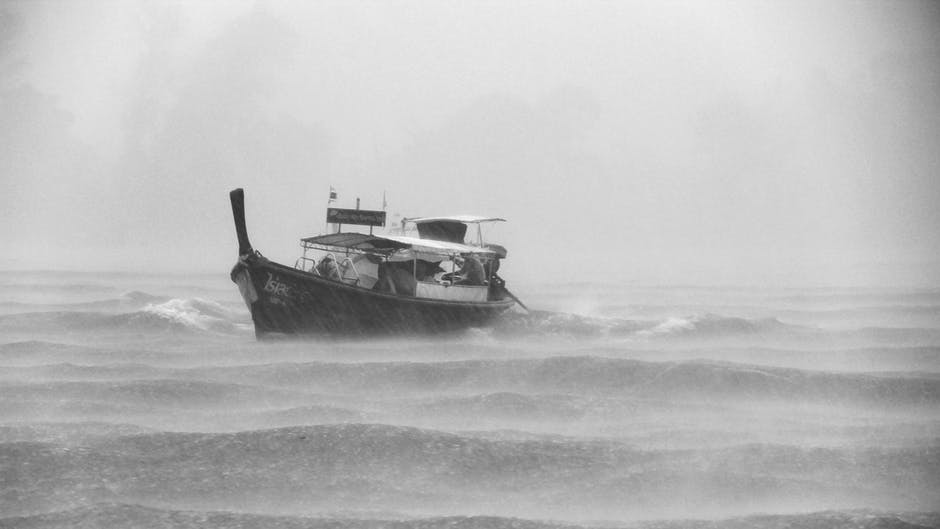This post may contains affiliate links. Please read my Disclaimer Page.
Have you ever heard the phrase “Hope for the best, prepare for the worst?”
When it comes to your finances, preparing for the worst can mean the difference between maintaining financially stability or sinking heavily into years and years of debt.
So, how does one financially prepare for the worst? Two words. Emergency. Fund.
We all know to “save for a rainy day,” however, the majority of us either get wrapped up consuming useless crap we think we need, or we fall trap to that all familiar feeling of being invincible and thinking “nothing bad will happen to me.”
Emergency funds are not only important in providing the ability to get ourselves out of a jam, but also psychologically give us that peace of mind knowing that not IF but WHEN things get rough we can calmly weather the storm.
Why Do I Need an Emergency Fund?
A few years back, I suddenly and tragically lost my younger brother. He died leaving behind no assets or insurance policies of any kind.
Paying for his funeral services became an unfortunate financial burden on our family that was unexpected. Luckily everyone in our family came together and chipped in where they could. At the time we were only able to contribute a couple thousand dollars. However, had we not had an emergency fund in place we may not have been in a financial position to contribute anything at all.
It is times and situations such as these where people will turn to credit cards, loans from family members, or other means of borrowing money to fill that gap.
I realize this example may seem a bit extreme, but emergencies are usually just that – extreme.
Having our emergency fund in place allowed us to focus on the situation we found ourselves in without having to worry about how our lives would be affected financially. And, there’s no price you can put on that peace of mind.
How Do I start An Emergency Fund?
Since emergencies are almost always sudden and unplanned, it’s important to have your money as liquid as possible and easily accessible. A standard savings account at your local bank will do the trick.
I like to keep mine at the same bank where I also have my main checking account so that I can quickly transfer funds between accounts in a pinch. However, if you think you will be too tempted to raid your fund from time to time, I’d suggest opening an account at a separate bank, and declining the option to have an ATM card on the account. This will make it more difficult to withdraw money, and may help you to resist the temptation.
I know the idea of keeping a chunk of money laying around generating a crappy rate of return in a bank savings account may be enough to make you cringe, but having to take a major loss when an “emergency” and a downturn in the market happen to coincide would be a far worse predicament. Besides, once your emergency fund is fully funded, there will be plenty of time and opportunity for investing in vehicles that provide decent returns.
How Much Do I Need?
While there is no hard and fast rule, most articles out there will suggest having an emergency fund of 3-6 months worth of expenses. My rule has always been – “What amount is right for my family and what are we most comfortable with?”
3-6 months worth of expenses is usually enough for most folks, and there is any variety of reasons why someone would favor one amount over the other. However, it ultimately comes down to your risk tolerance and comfort level. What works for one person may not work for another.
For example, I currently keep about 10 months worth of expenses in our emergency fund. This may be overkill, and others may argue we’d be better off keeping 5 or 6 months worth and investing the other half, but for the time being this is where our comfort level lies, and where our fund will stay. 😉
What If I’m In Debt and Don’t Have Excess Funds for an Emergency Fund?
It’s easy to just say “save 3-6 months worth of expenses and your good to go.” I realize for most people saving 3-6 months of expenses will take some time, especially for those trying to also pay down debt.
We simultaneously built up our emergency fund while attempting to pay down over $100k in student loan debt, and trying to still do things we enjoy such as travelling. It takes time.
Incorporating existing debt into the picture can make building an emergency fund seem nearly impossible at times. However, you HAVE to make it a priority. Otherwise, when times get rough (and they will) you will have to turn to more debt to fill the gap essentially just digging the hole deeper and deeper.
Start with a small goal that’s achievable.
Set yourself a goal to save $500 or $1,000 in your emergency fund.
I recommend giving yourself a timeline as well.
Even if this means making the minimum payments on your debt, eating more meals at home, bringing your own lunch to work, etc. Keep pushing until you hit that goal.
What you’ll find is once you get that first $500 or $1,000 saved you will not only feel accomplished, but saving more beyond that can become addictive. Not to mention the additional comfort it brings knowing you can now get yourself out of a jam when one arrives.
(Tip: If you have direct deposit from your employer, many of them will allow you to split your check into different accounts. Have them take out a small amount per paycheck and send directly to your emergency fund account and forget about it. Check your account balance in 6 months and you’ll be surprised to see how quickly it adds up)
Final Thoughts on Emergency Funds
In conclusion, when it comes to emergency funds, you can’t afford NOT to have one.
Accidents happen, cars break down, jobs are lost, hot water heaters burst, etc. $hit happens and it happens when you least suspect it.
You need to be ready. You need to have a plan.
Besides, once you have a fully funded emergency fund, you can move onto more fun things like investing and figuring out how to let compound interest lead you to Financial Independence.
If you aren’t already saving for a rainy day then start NOW. The weather isn’t always going to be good..





2 thoughts on “Emergency Funds: Weathering the Storm”
I like the analogy of weathering the storm to emergency funds! It really helps put it into perspective because it’s true, it’s not ALWAYS going to be good weather. Emergency funds are absolutely necessary.
Yes, an emergency fund is the back bone from which you can build wealth over time. A little preparation and discipline go a long way. Nice post!